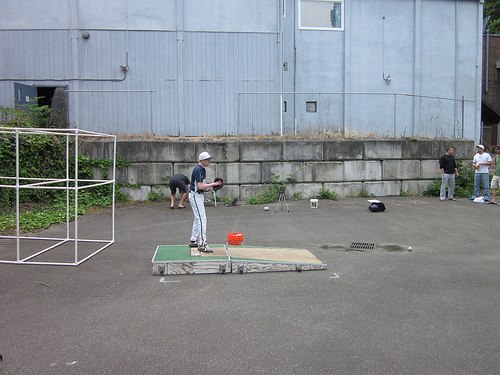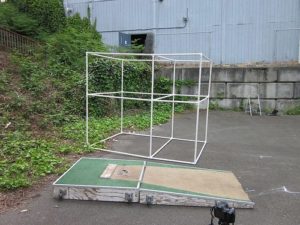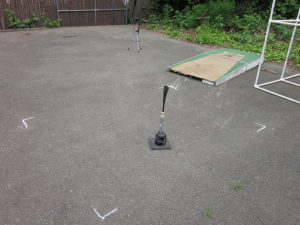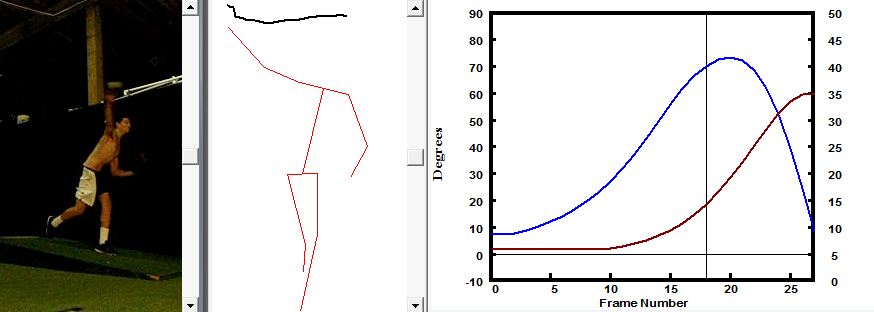Our Motion Capture Lab: The Overview

Since the weather’s gotten a bit better, we’ve decided to do our high-speed biomechanical analysis filming outside. Matthew (my research assistant) and I took the equipment outside where we continued progress on our three-dimensional filming model.
Today, we filmed a few different movement patterns:
- Baseball pitching off a mound
- Shot put throw
- Baseball swing off a tee
For those unaware of how it works, we reconstruct our control object of precisely known size and put it where we want to capture the motion.
We then chalk the corners of the object, indicating the boundaries of where we can film. After that, we film the cube from the number of high-speed cameras we’ll be using. By doing this, each camera is then calibrated with the specific locations of the cube. The cameras will not move from these positions while the trials are being filmed.
We then film the subject performing whatever motion we want to analyze, using all of our high-speed cameras.
[youtube 1bCUGf-97Gc nolink]
And lastly, we’ll digitize the two-dimensional video files, creating a three-dimensional model from the video files. We then have kinematics we can store in a database for future analysis and a three-dimensional skeletal model we can use for coaching and training purposes for the athlete.
We’ve improved the process a number of times, making setup much quicker. We can deploy the motion capture lab at a mobile site in under an hour, and then film test subjects all day. This makes our lab setup ideal for filming pitchers in competition without being intrusive – no external markers are necessary on the athlete.
Interested? Look into our biomechanical video analysis services, and contact us today.



Comment section